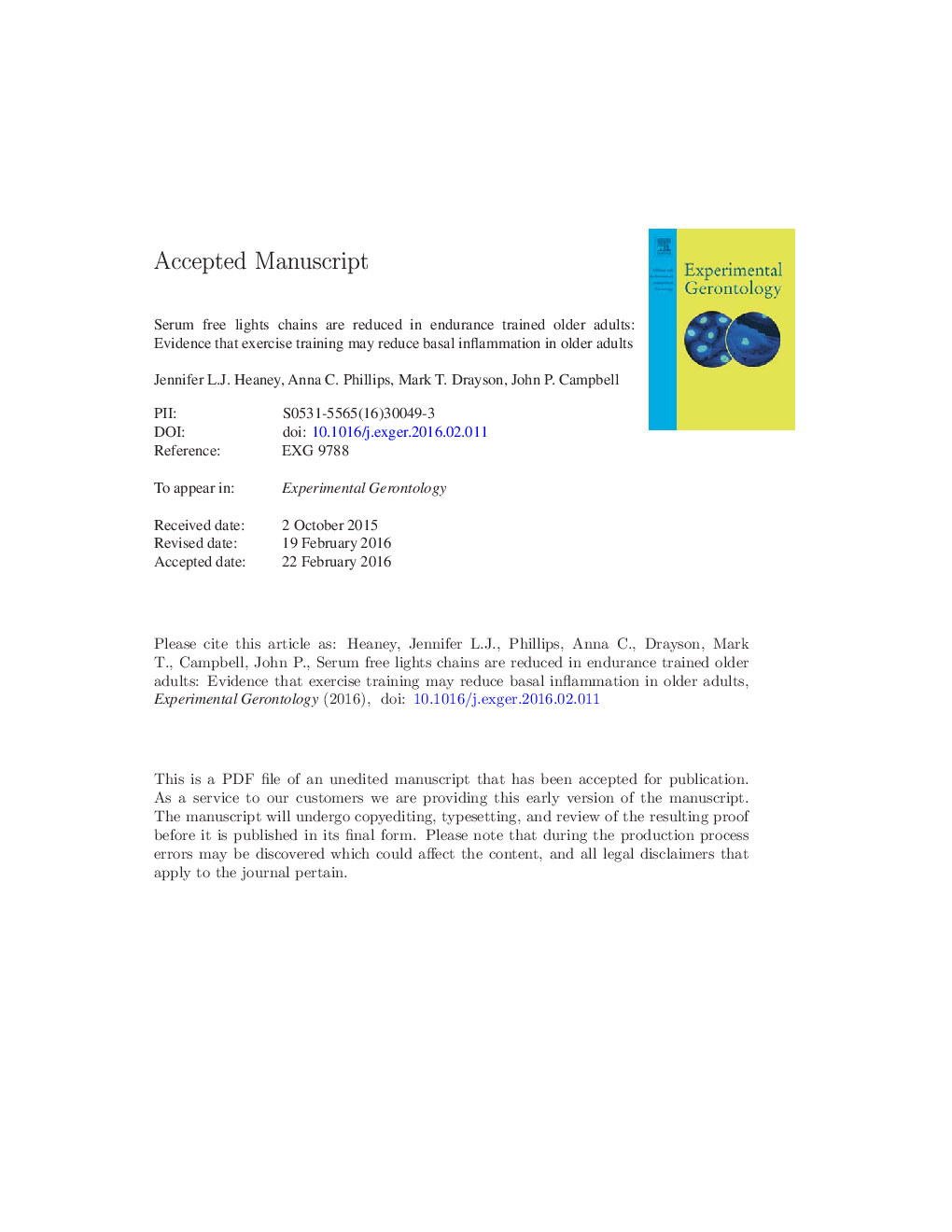| Article ID | Journal | Published Year | Pages | File Type |
|---|---|---|---|---|
| 8262898 | Experimental Gerontology | 2016 | 35 Pages |
Abstract
Traditionally, free light chains (FLCs) are used as key serum biomarkers in the diagnosis and monitoring of plasma cell malignancies, but polyclonal FLCs can also be used as an accurate real-time indicator of immune-activation and inflammation. The primary aim of the present study was to assess the effects of exercise training status on serum FLCs in older adults, and secondly, to examine if training status moderated serum FLC responses to acute exercise. Kappa and lambda serum FLC levels were measured in 45 healthy older adults (aged â¥Â 60 years) who were either sedentary, physically active or endurance trained. FLCs were measured at baseline and in response to an acute bout of submaximal exercise. The endurance trained group had significantly lower levels of kappa and lambda serum FLCs compared with physically active or sedentary elderly adults; these effects were independent of age, BMI and renal function. There was no significant difference in whole immunoglobulins between groups. Exercise training status had no effect on serum FLC responses to acute exercise, which were marginal. In conclusion, endurance training was associated with lower FLC levels compared with less physically active individuals. These findings suggest that long-term endurance training may be beneficial in reducing basal inflammation in older adults as well as elevated FLCs present in inflammatory and autoimmune conditions, often associated with ageing. FLCs may serve as a useful biomarker for monitoring the efficacy of exercise intervention studies in healthy and clinical populations.
Related Topics
Life Sciences
Biochemistry, Genetics and Molecular Biology
Ageing
Authors
Jennifer L.J. Heaney, Anna C. Phillips, Mark T. Drayson, John P. Campbell,
